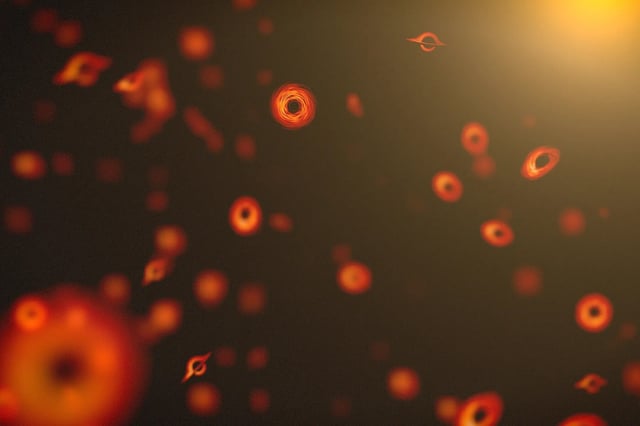Overview
- Primordial black holes, theorized to have formed in the early universe, are proposed as potential candidates for dark matter, but none have been observed to date.
- A new study posits that primordial black holes could leave signatures such as hollow structures in planets or microscopic tunnels in solid materials on Earth.
- Hollow planetoids formed by black holes consuming liquid cores could be detectable through low-density anomalies in their orbits, but would collapse if larger than one-tenth of Earth’s radius.
- Microscopic tunnels left by black holes passing through solid objects could be identified in ancient materials like rocks or metals, though the probability of such an event is extremely low.
- The researchers emphasize the need for innovative approaches to detect these elusive objects, highlighting their potential to address unresolved questions about dark matter and early universe physics.
